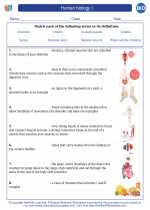Vitamins
Vitamins are essential organic compounds that are required in small amounts for the normal functioning of the human body. They play a crucial role in various physiological processes, including metabolism, immunity, and growth.
Types of Vitamins
Vitamins are classified into two categories: water-soluble vitamins and fat-soluble vitamins.
Water-Soluble Vitamins
These vitamins are not stored in the body and are easily excreted in urine. They include:
- Vitamin C
- B-vitamins (B1, B2, B3, B5, B6, B7, B9, B12)
Fat-Soluble Vitamins
These vitamins are stored in the body's fatty tissues and liver. They include:
Sources of Vitamins
Vitamins can be obtained from various food sources, including:
Functions of Vitamins
Each vitamin has specific functions in the body. Some of the key functions include:
- Antioxidant activity (e.g., vitamin C and E)
- Cellular energy production (e.g., B-vitamins)
- Bone health (e.g., vitamin D)
- Wound healing (e.g., vitamin A)
Deficiency and Toxicity
Deficiency of vitamins can lead to various health problems, such as scurvy (vitamin C deficiency) and rickets (vitamin D deficiency). On the other hand, excessive intake of certain vitamins can lead to toxicity and adverse effects.
Study Guide
When studying vitamins, it's important to:
- Understand the classification of vitamins into water-soluble and fat-soluble categories.
- Memorize the different types of vitamins and their sources.
- Learn about the functions of each vitamin in the body.
- Understand the consequences of vitamin deficiency and toxicity.
◂Biology Worksheets and Study Guides High School. Human biology I
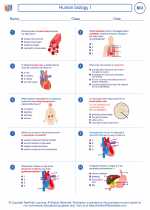
 Worksheet/Answer key
Worksheet/Answer key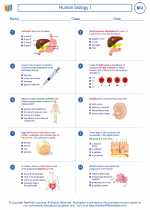
 Worksheet/Answer key
Worksheet/Answer key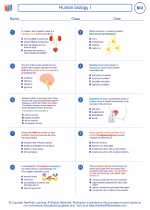
 Worksheet/Answer key
Worksheet/Answer key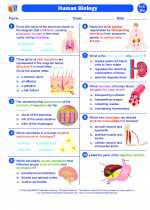
 Vocabulary/Answer key
Vocabulary/Answer key
 Vocabulary/Answer key
Vocabulary/Answer key
 Vocabulary/Answer key
Vocabulary/Answer key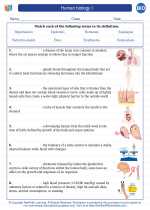
 Vocabulary/Answer key
Vocabulary/Answer key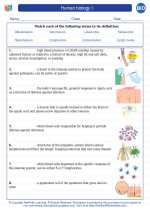
 Vocabulary/Answer key
Vocabulary/Answer key
 Vocabulary/Answer key
Vocabulary/Answer key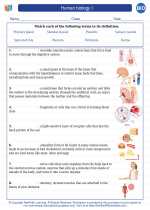
 Vocabulary/Answer key
Vocabulary/Answer key